Michaël Aklin
ISEP Fellow
Assistant Professor of Political Science
Assistant Professor of Public Policy (by courtesy)
University of Pittsburgh
Website: www.pitt.edu/~aklin/
Email: [email protected]
Twitter: @MichaelAklin
Michaël Aklin is Assistant Professor of Political Science at the University of Pittsburgh. He also holds a courtesy appointment at Pitt’s Graduate School of Public and International Affairs (GSPIA). He received his Ph.D. in Political Science from New York University in 2014 and spent a year as a postdoctoral fellow at the University of Pennsylvania. He was also a Visiting Scientist at the Potsdam Institute for Climate Impact Research (PIK) in Germany.
Michaël is interested in long-term policy issues such as climate change and sustainable energy transitions. He studies these issues both at the global and local levels, and has published in outlets such as Nature Energy, Science Advances, and the American Journal of Political Science. At Pitt, Michaël teaches classes on environmental politics, climate policy, and statistics. His goal is to equip students with a critical mindset and the tools to tackle the defining issues of our time.
As an ISEP fellow, Michaël does practical and actionable research. He has a particular interest in renewable energy as a solution to the problem of energy poverty in countries such as India. More generally, he is interested in the connections between development and environmental policies.
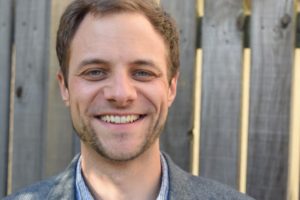 Patrick Bayer
Patrick Bayer
ISEP Fellow
Assistant Professor of International Relations
University of Glasgow
Website: www.patrickbayer.com
Email: [email protected]
Twitter: @pol_economist
Patrick Bayer is Assistant Professor in International Relations at the University of Glasgow. He received his Ph.D. in Political Science from the University in Mannheim in 2013 and holds an M.Sc. degree in Environmental Economics from University College London. Prior to coming to Glasgow, he was research fellow at Washington University in St. Louis and Columbia University.
Patrick’s research focuses on central questions in international cooperation, with applications to environmental and energy politics. Previous research includes work on feed-in tariffs, renewable energy as well as climate and environmental finance, which has been published in Science Advances, the Journal of Politics, and the Journal of Conflict Resolution. Patrick teaches classes on global environmental politics, international organizations, and research methods, and was among the teaching faculty of the EITM Europe Summer Institute.
Patrick has recently developed a keen interest in formal modeling and empirical testing of the strategic interaction of governments and firms in carbon regulation. As ISEP fellow, he will be contributing to evidence-based analysis of international climate governance and regulatory policy, such as emissions trading.
Andrew Cheon
ISEP Fellow
Assistant Professor of International Political Economy
School of Advanced International Studies (SAIS)
Johns Hopkins University
Website: www.andrewcheon.com
Email: [email protected]
Andrew Cheon is Assistant Professor of International Political Economy at Johns Hopkins School of Advanced International Studies. He concentrates on issues of international political economy, theories of international relations, and problems of energy governance. Before joining the SAIS faculty, he obtained his doctorate in Political Science from Columbia University.
His current research analyzes the global investments of national oil companies, presenting a political economy account with a focus on bureaucratic institutions. His work has appeared in Comparative Political Studies, Journal of Conflict Resolution, and Global Environmental Change. He recently completed a book manuscript on activism against the fossil fuel industry.
As ISEP, Andrew seeks to contribute theoretically grounded research on topics of policy relevance, such as governance of fossil fuels and energy security.
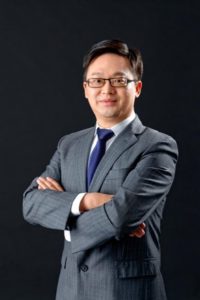 Dingding Chen
Dingding Chen
ISEP Fellow
Professor, Associate Dean
School of International Studies/ Academy of Overseas Chinese Studies/ Institute for 21st Century Silk Road Studies
Jinan University
President, Intellisia Institute
Website: https://scholar.google.com/citations?user=zOSnqu0AAAAJ&hl=en
Email: [email protected]
Dingding Chen is Professor of International Relations, Associate Dean of Institute for 21st Century Silk Road Studies at Jinan University, Guangzhou, China, and Non-Resident Fellow at the Global Public Policy Institute (GPPi) Berlin, Germany, Vice-President of International Studies Association (Asia Pacific region 2014-2018). He is also the Founding President of Intellisia Institute, a newly established independent think tank focusing on international affairs in China. His research interests include Chinese foreign policy, Asian security, Chinese politics, and human rights. His articles have appeared in International Studies Quarterly, International Security, Journal of Contemporary China, Chinese Journal of International Politics, and The Washington Quarterly. He is the co-editor of a book on international engagement with human rights in China. Before teaching at university of Macau between 2009 and 2016, he was a visiting instructor in the government department at Dartmouth College and was also a China and the World Program Fellow at Harvard University. He holds a bachelor’s degree in international economics from the Renmin University of China and a master’s degree and PhD in political science from the University of Chicago.
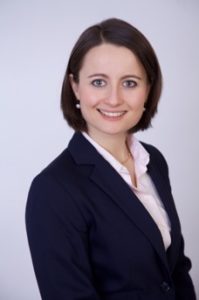 Eugenie Dugoua
Eugenie Dugoua
ISEP Fellow
Assistant Professor in Environmental Economics
Department of Geography and Environment
London School of Economics and Political Science
Website: www.eugeniedugoua.com
Email: [email protected]
Eugenie Dugoua is Assistant Professor in Environmental Economics at the London School of Economics and Political Science. As an environmental economist analyzing the issue of technological change, her interests lie primarily in understanding how institutions and policies influence science, technological innovation and diffusion so that economic development can be sustainable for the environment and societies. Before joining LSE faculty, Eugenie graduated with a Ph.D. from Columbia University in 2018.
In her job market paper, Eugenie applies machine learning techniques for text analysis and econometric methods to provide the first empirical evidence that the Montreal protocol and its following amendments to protect the ozone layer triggered a significant increase in research and innovation concerning alternatives to ozone-depleting substances. In another working paper, she examines challenges to green technological transitions at the firm level by looking at firms’ interconnectedness and supply chain networks.
Last but not least, another key aspect of her research agenda concerns technological change in developing countries and in particular energy poverty. For example, she explored the potential of nighttime lights data for measuring electrification progress as well as the socio-demographic profiles of those who benefited from the recent progress in rural electrification in India. Her work has appeared in Energy Policy, the International Journal of Remote Sensing and the International Journal of Energy Research.

Federica Genovese
ISEP Fellow
Assistant Professor of Government
University of Essex
Website: http://www.federica-genovese.com
Email: [email protected]
Twitter: @fgenovese86
Federica Genovese is Lecturer (Assistant Professor) at the Department of Government at the University of Essex. She is also the lead of the Quantitative Social Science section of the Eastern Academic Research Consortium between University of East Anglia, University of Essex and University of Kent. She received her Ph.D. in Political Science from University of Konstanz in 2013, and spent one year as a postdoctoral fellow at Stanford University before moving to Essex.
Federica is interested in the global, cross-national and domestic politics of environmental problems. In the past she has studied cross-country positions on global climate cooperation, the industrial politics of climate change mitigation, and public opinion on green policies. She uses a wide range of research methodologies. She has published her work in outlets such as Environmental Politics, British Journal of Political Science and International Studies Quarterly. At Essex, Federica teaches classes on environmental politics and research methods.
In her current research, Federica focuses on topics such as the politics of the 2015 Paris Agreement pledges and the strategic use of fairness at international climate change negotiations. She is also interested in business positions on policies such as the EU Emission Trading Scheme and the implications of domestic institutional tensions on countries’ positions at the UNFCCC.

Thomas Hale
ISEP Fellow
Associate Professor of Global Public Policy
Blavatnik School of Government, University of Oxford
Website: https://www.bsg.ox.ac.uk/people/thomas-hale
Email: [email protected]
Twitter: @thomasnhale
Dr. Thomas Hale’s research explores how we can manage transnational problems effectively and fairly. He seeks to explain how political institutions evolve-or not-to face the challenges raised by globalization and interdependence, with a particular emphasis on environmental and economic issues. He holds a PhD in Politics from Princeton University, a masters degree in Global Politics from the London School of Economics, and an AB in public policy from Princeton’s Woodrow Wilson School. A US national, Hale has studied and worked in Argentina, China, and Europe. His books include Beyond Gridlock (Polity 2017), Between Interests and Law: The Politics of Transnational Commercial Disputes (Cambridge 2015), Transnational Climate Change Governance (Cambridge 2014), and Gridlock: Why Global Cooperation Is Failing when We Need It Most (Polity 2013).
LLewelyn Hughes
ISEP Fellow
Crawford School of Public Policy
Australian National University
Website: www.llewelynhughes.net
Email: [email protected]
Llewelyn Hughes is Associate Professor at the Crawford School of Public Policy at the Australian National University (ANU), where he sits on the Energy Change Institute’s Executive Committee. He has authored numerous papers on energy-policy related issues, and is the author of Globalizing Oil: Firms and Oil Market Governance in France, Japan, and the United States, published by Cambridge University Press. At ISEP, Llewelyn works on clean technology innovation, with a particular focus on the Asia-Pacific region.
In addition to his academic work Llewelyn is Research Director at GR Japan, a government and public affairs consultancy based in Tokyo, where his advice helps companies in the solar photovoltaic, wind, and energy efficiency sectors navigate regulatory affairs in the Japanese market. He received a Ph.D. from the Massachusetts Institute of Technology (MIT), and holds a Masters degree from the Graduate School of Law and Politics at the University of Tokyo. Llewelyn is trained as a simultaneous and consecutive interpreter in the Japanese language, and is a citizen of Australia, New Zealand and Great Britain.
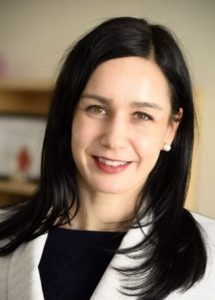 Sarah Jordaan
Sarah Jordaan
ISEP Fellow
Assistant Professor
Energy, Resources and Environment and Canadian Studies
School of Advanced International Studies (SAIS)
Johns Hopkins University
Sarah Jordaan’s research is aimed at uncovering the environmental and economic trade-offs related to energy decisions. Her publications focus on not only life cycle assessment of energy technologies but also more broadly on environmental science, technology innovation and energy policy. Her collaborations have been published in numerous journals, such as Science Magazine, Nature Energy, Environmental Science & Technology, and Renewable and Sustainable Energy Reviews. Prior to Johns Hopkins University, she was an Assistant Professor of Energy Policy and Politics at the University of Calgary from 2013-2016. She held a joint postdoctoral fellowship at Harvard University between the Department of Earth and Planetary Sciences and the Belfer Center of Science and International Affairs at the Kennedy School of Government. She has also held positions at the Electric Power Research Institute, Shell Canada, and the Laboratory on International Law and Regulation at the University of California, San Diego. She earned her doctorate in Environmental Design from the University of Calgary in 2010 and a Bachelor’s degree in Physics with a minor in Computer Science from Memorial University in 2003.
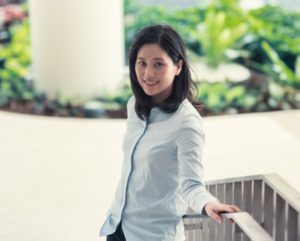 Sung Eun Kim
Sung Eun Kim
ISEP Fellow
Assistant Professor of Political Scince
Korea University
Email: [email protected]
Sung Eun Kim is Assistant Professor in the Department of Political Science and International Relations at Korea University. Her research interests include political economy of environment and energy and international political economy with a particular attention to the impact of information on individuals’ economic and political responses to globalization. Broadly, her research lies at the intersection of domestic politics and international relations and draws upon a wide body of quantitative and text-based data. She received B.A. and M.A. in Political Science from Korea University, and Ph.D. in Political Science from Columbia University.
As an ISEP fellow, Sung will be conducting research on political and economic geography of air pollution, with a keen interest in analyzing public awareness of and media attention to it in emerging economies.
David Livingston
ISEP Fellow
Associate Fellow
Energy and Climate Program of the Carnegie Endowment for International Peace
Website: http://carnegieendowment.org/experts/553
David Livingston is an associate fellow in Carnegie’s Energy and Climate Program, where his research focuses on emerging markets, technologies, and risks. He is also a nonresident associate of Carnegie Europe in Brussels. Previously, Livingston served as the inaugural Robert S. Strauss fellow for geoeconomics at the Office of the United States Trade Representative, where he concluded as acting Assistant U.S. Trade Representative for Congressional Affairs. He also has worked at the World Trade Organization in Geneva and at the United Nations Industrial Development Organization (UNIDO) in Vienna.
Livingston was selected as a Future Energy Leader by the World Energy Council, is an alumnus of the Atlantik Brücke Young Leaders Program, and serves on the advisory board of South by Southwest (SXSW) Cities and a number of social enterprise start-ups.
 Paasha Mahdavi
Paasha Mahdavi
ISEP Fellow
Assistant Professor of Public Policy
Georgetown University
Website: www.paashamahdavi.com
Email: [email protected]
Paasha Mahdavi is Assistant Professor at the McCourt School of Public Policy at Georgetown University and Director of the M.S. in Data Science for Public Policy program.
As a Fellow at the Initiative for Sustainable Energy Policy at Johns Hopkins SAIS, Paasha studies the politics of nationalization and state-owned enterprises in the energy sector (the subject of his current book project); the consequences of oil-to-cash transfers; and the political economy of fossil fuel subsidy reform. His work has been published in journals such as Energy Policy, Nature Energy, and World Politics. Paasha is an Affiliated Assistant Professor in the Department of Government at Georgetown and currently serves as the GFC Fellow for the Council on the Future of Energy at the World Economic Forum. In a past life, Paasha worked as an energy consultant for ICF International. He earned his M.A. in international policy from Stanford, and M.S. in statistics and Ph.D. in political science from UCLA.
Jonas Meckling
ISEP Fellow
Assistant Professor of Energy and Environmental Policy
University of California, Berkeley
Website: www.jonasmeckling.com
Email: [email protected]
Twitter: @jonasmeckling
Jonas Meckling is Assistant Professor at the University of California, Berkeley, where he leads the Energy and Environment Policy Lab.
Jonas studies clean energy transitions and the political forces that drive them. He is particularly interested in the global politics of energy innovation, including in industries such as solar and electric vehicles. Jonas is the author of two books, the latest of which is Carbon Coalitions: Business, Climate Politics, and the Rise of Emissions Trading (MIT Press). He published in journals such as International Studies Quarterly, the Review of International Political Economy, and Science.
Jonas is a Faculty Affiliate at the Energy and Resources Group at Berkeley and a Fellow at the Initiative for Sustainable Energy Policy at Johns Hopkins. Previously, Jonas served as Senior Advisor to the German Federal Ministry of the Environment, was a Fellow at the Harvard Kennedy School, and worked at the European Commission. He holds a Ph.D. from the London School of Economics.

Jonas Nahm
ISEP Fellow
Assistant Professor of Energy, Resources and Environment
School of Advanced International Studies (SAIS)
Johns Hopkins University
Website: www.jonasnahm.com
Email: [email protected]
Twitter: @jonasnahm
Jonas Nahm is Assistant Professor of Energy, Resources, and Environment at the Johns Hopkins School of Advanced International Studies in Washington, DC.
Jonas studies the political economy of development and industrial upgrading in green industries, the politics of innovation, and the political economy of the energy sector. In addition to China – his primary focus for the exploration of these themes – Jonas’ research draws on cases in Germany and the United States. His current book project “Varieties of Innovation: The Creation of Wind and Solar Industries in China, Germany, and the United States” examines the mechanisms through which distinct patterns of innovation have emerged in renewable energy sectors in each of these locations. A new research project investigates the politics of greening the auto sector in China, Germany, and the United States.
Before joining the faculty, Jonas was a Postdoctoral Fellow for International and Public Affairs at the Watson Institute at Brown University. He holds a PhD in Political Science from MIT.
Wei Peng
ISEP Fellow
Giorgio Ruffolo Postdoctoral Research Fellow in Sustainability Science
J.F. Kennedy School of Government, Harvard University
Website: https://sites.google.com/site/weipengprinceton/
Email: [email protected]
Twitter: @WeiPeng_Pton
Wei Peng is a Giorgio Ruffolo Postdoctoral Research Fellow in Sustainability Science in the Belfer Center for Science and International affairs at the J.F. Kennedy School of Government, Harvard University.
Her research utilizes integrated assessment methods to inform energy policy in both emerging markets (e.g. China) and developing countries (e.g. U.S.) that aligns carbon mitigation efforts with local environmental and socioeconomic priorities. She focuses on the synergies and tradeoffs between energy sector decarbonization and other local concerns (e.g. air pollution, public health, water conservation, economic costs and jobs), as well as the potentially unequal geographic impacts at the subnational level. She uses a variety of modeling tools, including atmospheric chemistry and transport models (e.g. WRF-Chem), integrated assessment models (e.g. GCAM, GAINS, RICE), and optimization models.
Wei earned a BS in Environmental Science from Peking University, and a PhD in Science, Technology and Environmental Policy from the Woodrow Wilson School of Public and International Affairs, Princeton University.
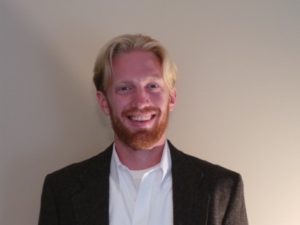 Justin Schon
Justin Schon
ISEP Fellow
Postdoctoral Associate, Department of Anthropology
Universiry of Florida
Website: http://justinschon.com/
Email: [email protected]
Justin Schon is a Postdoctoral Associate in the Department of Anthropology at the University of Florida. He works on a multi-disciplinary team of engineers, climate scientists, and social scientists to develop predictive models of environmental change and human migration. Justin concentrates on issues of migration, armed conflict, and development. Before joining the University of Florida, he obtained his doctorate in Political Science from Indiana University, Bloomington.
His current research analyzes internal and international migration flows with network, time series, spatial, and interview methods. His work has appeared in Journal of Refugee Studies, Civil Wars, International Interactions, and Journal of Social Structure. He is currently revising a book manuscript on civilian self-protection strategies during conflict, drawing from over 250 interviews with Syrian and Somali refugees.
As an ISEP fellow, Justin seeks to contribute to understandings of energy access in Sub-Saharan Africa. This fits within his broad curiosity in how ordinary people and elites obtain information and respond to uncertainty.
Leah Stokes
ISEP Fellow
Assistant Professor, Department of Political Sceince
University of California, Santa Barbara
Website: www.posci.ucsb.edu/faculty/stokes
Email: [email protected]
Twitter: @leahstokes
Leah Stokes’ research examines public policy, public opinion and political behavior, with a focus on energy and environment. Her current book project studies interest groups’ role in changing US states’ energy policy, with a focus renewable portfolio standards and net-metering laws. Other ongoing projects include examining protests against energy infrastructure, political staff in Congress, environmentalists’ electoral participation, violence against environmental activists, and effective water conservation policy in California. To date, her research has been published in journals including The American Journal of Political Science, The British Journal of Political Science, Energy Policy, Nature Energy, Global Environmental Politics, and Environmental Science & Technology. Her work has been cited in popular media including The New York Times, Vox, The Toronto Star and CBC. Prior to academia, Leah worked at the Parliament of Canada and Resources for the Future. Leah is also the co-Chair of the Scholars Strategy Network’s Working Group on Energy & Climate and is affiliated with the Bren School of Environmental Science & Management.

Rui Wang
ISEP Fellow
Associate Professor of Energy, Resources and Environment
School of Advanced International Studies (SAIS)
Johns Hopkins University
Rui Wang specializes in the public policy analysis for sustainable development, especially on issues related to cities or China. Rui’s research appears in the areas of public policy, economics, and natural science and has been covered in the Atlantic, Harvard Business Review, Los Angeles Times and New York Times. He also gave invited talks at the China Finance 40 Forum, Hong Kong Monetary Authority, Los Angeles World Affairs Council, RAND, World Bank, and numerous academic conferences and institutions. His works on California’s local climate actions, China’s urban household carbon emissions, and parking in China’s cities were cited by the IPCC’s Fifth Assessment Report.
Rui is the inaugural SAIS China Yeung Family Endowed Scholar and a steering committee member of the Johns Hopkins 21st Century Cities Initiative. He serves on the editorial boards of Transportation Research Part D: Transport and Environment and USDOT’s Journal of Transportation and Statistics. He has consulted for Beijing Municipal Institute of City Planning and Design, U.S. Department of Housing and Urban Development, and the World Bank.
Rui earned his bachelor’s degrees in Geography and Economics from Peking University and a Ph.D. in Public Policy from the Harvard Kennedy School. He taught at UCLA before joining SAIS.
 Patrick Bayer
Patrick Bayer Dingding Chen
Dingding Chen Eugenie Dugoua
Eugenie Dugoua

 Sarah Jordaan
Sarah Jordaan Sung Eun Kim
Sung Eun Kim Paasha Mahdavi
Paasha Mahdavi
 Justin Schon
Justin Schon
